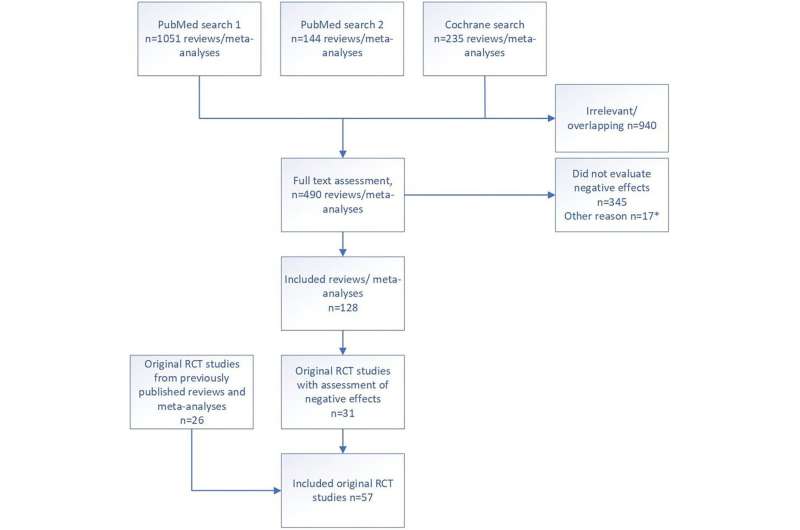This article has been reviewed according to Science X's editorial process and policies. Editors have highlighted the following attributes while ensuring the content's credibility:
fact-checked
trusted source
proofread
Better identification of adverse effects could enhance the quality of psychotherapy

Psychotherapy is a key evidence-based method of treatment and rehabilitation for various mental health disorders, in addition to pharmacotherapy.
Psychotherapy is often discussed with a focus on its benefits, while the systematic monitoring, identification, and prevention of its adverse effects is not as rigorous as the monitoring of adverse effects in pharmacotherapy, for example. Psychotherapy can, however, also have adverse effects, regardless of the therapy technique, factors related to the client or the therapist, or some combination of these.
A recent study conducted at the University of Eastern Finland explored adverse effects associated with psychotherapy. The aim was to gather information on psychotherapy-associated adverse events, their content, scope, and severity for the client.
The researchers conducted a systematic literature review of previous reviews and meta-analyses on randomized controlled trials (RCTs) examining the effectiveness and negative effects of psychotherapy. Potential negative outcomes were mentioned only in a small proportion (30%) of the relevant studies, and 57 original studies were ultimately included in the review.
The researchers found that no significant negative outcomes emerged in the studies included in the review; however, the studies represent an extremely small proportion of all published RCTs on psychotherapy.
"However, we should use and develop standardized methods for assessing the adverse effects of psychotherapy. For example, establishing independent systems and systematically collecting data to monitor adverse events could be ways to gain more insight," says Professor Kirsi Honkalampi of the University of Eastern Finland.
According to her, proper identification and management of adverse effects are indications of good clinical practice and could also help to enhance the quality of psychotherapy.
The research is published in the journal Psychotherapy Research.
More information: Kirsi Honkalampi et al, Negative effects in randomized controlled trials of psychotherapies and psychological interventions: A systematic review, Psychotherapy Research (2024). DOI: 10.1080/10503307.2024.2301972
















